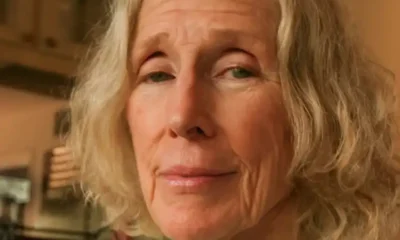Connect with us
Published
1 year agoon

While legal cannabis has surely brought numerous benefits along with it, that’s not to say it’s without faults.
One issue that often comes up in relation to the legal cannabis industry is the amount of waste it creates. To ensure compliance, many states use plastic items that are not recyclable at home, and the amount of plastics used overall contribute to the ever-increasing global crisis of plastic waste. On top of that, the cannabis industry tends to use a lot of energy and resources as a whole, which can feel problematic as humans continue to cope with and manage the forces of climate change.
Colorado is one state looking to combat these issues. The Colorado Energy Office (CEO) is introducing the Cannabis Resource Optimization Program (CROP), designed to provide eligible cannabis cultivation businesses with no-cost technical assistance to create a better understanding of energy and water use.
The program is also intended to help industry professionals to identify cost-effective resource management opportunities, and the program will also include a facility audit and analysis of previous resource usage. The analysis will look at historic electricity, gas, water and other resource usage in order to identify impactful energy improvements, like installed LED fixtures or upgrading HVAC systems.
Because cannabis is still federally illegal, and there are still a lack of federal laws regulating the production and distribution of cannabis, banks have been largely reluctant to help cannabis businesses with affordable financing options. Because of this lack of access, cultivators often cannot invest in efficiency improvements. Cannabis cultivation business owners will then be able to work with the Colorado Clean Energy Fund to secure low-interest financing to implement the suggested improvements.
CEO Sustainable Cannabis Program Manager Elizabeth Lee referenced this roadblock for cannabis businesses in a press release announcing the program.
“Cannabis is a legitimate business in Colorado and 20 other states across the country, yet cannabis businesses are completely shut-out of the financing opportunities that are available in other industries,” Lee said. “The state recognizes that cannabis cultivation uses a substantial amount of energy and created the CROP program to provide unprecedented access to low-interest loans for improvements that ease this financial burden on Colorado businesses.”
The official CROP webpage also cites CEO’s 2018 Energy Use in the Colorado Cannabis Industry report, calling the energy burden associated with Colorado cannabis cultivation “significant.” The report found that cultivation facilities used an estimated 2% of the electricity generated in Colorado.
Along with the broader implications, this energy usage can also be detrimental to cannabis businesses. Because of this electricity use, and additional natural gas and propane use, the report notes that energy expenditures make up an estimated 33% of cultivation business’ operating costs.
Colorado Gov. Jared Polis cited that the state was the first to legalize cannabis, adding that it will now become the first to help licensed cultivators to be more energy efficient.
“Providing innovative ways for cannabis cultivation operators to improve energy efficiency will save business owners money and reduce energy use in the industry,” Polis said in the press release.
The CROP program is funded by the 2022 “Air Quality Improvement Investments” bill, and the CEO will open its first round of applications for the program on Feb. 15, 2023. The first round of applications is open to cultivators weeking technical assistance who do not already have access to assistance through their utility providers.The same day from 11:30 a.m. to 12:30 p.m. MT, the CEO will also host a webinar for Colorado cultivation business owners to learn more about the program, facility audits, financing and how to apply for the program. Registration for the webinar is available here.


Enemies of Weed Legalization Are Already Raising Money To Challenge Federal Rescheduling Effort


Psychedelic Pioneer Peggy Mellon Hitchcock Dies at 90


Alaska House Approves Bill To Establish Task Force To Investigate Psychedelic Therapy


Study Finds Medical Cannabis Provides Lasting Benefits for Osteoarthritis Patients


Study: ADHD Patient MMJ Use Leads to Improvements in Anxiety, Sleep, Quality of Life


Clinical Trial To Assess LSD Microdosing For PMS



